8 Surfaces You Should Never Clean with Vinegar
Vinegar is an amazing and versatile cleaner for all kinds of applications around the house. However, because it is acidic it has limitations. Vinegar has the potential to harm certain surfaces. To prevent any damage, avoid using any strentgth vinegar on the following surfaces and household items.
1. Hardwood Floors
Even regular supermarket plain white vinegar that is labeled 5% acidity, has sufficient acid to dull or harm the finish of hardwood floors.
Achieving a shiny appearance on hardwood floors can be a challenging task, and the use of vinegar over time can ruin that beautiful shine. You may not notice any problem after the first few cleanings, but the damage is cumulative.
Warning
When you are using vinegar to clean in the house, never add it to chlorine bleach; it will create noxious chlorine gas, a potentially deadly compound.
2. Wood Furniture, Paneling, Cabinets
Vinegar can also harm the finish on wood furniture, whether it’s stained, painted, or waxed. It can leave the surface looking dull and cloudy.
Granted, you’ll frequently read that vinegar is ideal for cleaning all types of wood and if you would like to use vinegar on finished or waxed wood furniture. If you choose to use vinegar on finished or waxed wood furniture, be aware of the risks involved and use it infrequently.
3. Chalk or Milk Painted Furniture
For furniture with chalk or milk paint, whether waxed or not, it’s best to avoid using vinegar on the surface. Instead, opt for a gentle cleaning method using a slightly damp microfiber cloth.
4. Grout
Avoid using vinegar on unsealed, poorly sealed, or in need of resealing grout. Vinegar’s penetration into the grout pores weakens the material and leads to deterioration over time, causing etching or wearing.
However, if you have regularly sealed your grout, vinegar should not pose a problem. Check your grout annually for resealing needs and use a recommended tile cleaner.
How to Test Grout for Sealer
Grout becomes weak and stained when it absorbs moisture and dirt due to inadequate sealing during installation or the deterioration of the existing sealant. Even high-quality grout installed correctly will eventually lose its integrity. To maintain its appearance and facilitate cleaning, grout should be resealed annually.
To determine the state of your grout, conduct a visual inspection. Look for signs of deterioration such as crumbliness, unevenness, or dirt accumulation. Pay attention to indications of an old sealer, such as peeling or haziness, which indicate the need for resealing.
Next, prepare a spray bottle with water, setting the nozzle to mist mode. Spray a fine mist of water onto the grout and allow it to sit for two to three minutes.
Afterward, examine the grout again. If the water forms beads or runs off the grout, it indicates that the grout is adequately sealed. However, if the grout darkens or absorbs the water, it means either the grout was never sealed or the old sealer has deteriorated, leaving the grout unprotected.
5. No-Wax Flooring (Vinyl and Linoleum)
The acidic nature of vinegar can strip away the shine and luster of no-wax floors. These types of flooring require a sudsy cleaner, so vinegar is not suitable. Instead, use a sponge mop, warm water, and a squirt of gentle dishwashing detergent like Blue Dawn for a deeper clean. Rinse the floor well to remove any suds and avoid using other liquid floor cleaners that may cause waxy buildup over time.
The best way to clean no-wax a vinyl or linoleum floor is to use a sponge mop and a bucket of warm water. For a deeper clean, add a squirt of gentle dishwashing detergent like Blue Dawn to the bucket of water, and be sure to give the floor a rinse to get rid of any suds.
Using any other type of liquid floor cleaner on no-wax floors could cause a waxy build-up over time.
6. Carpet Odors
Although vinegar is often suggested for pet stains, it is not as effective as specialized enzymatic carpet cleaners like Nok-Out. Vinegar may temporarily mask the odor but does not address the underlying cause. For better results, use Nok-Out or a carpet cleaner designed specifically for pet stains that contains enzymes to eliminate the odor.
For best results use Nok-Out or a carpet cleaner specifically designed for pet odors that contains enzymes. Nok-Out eliminates the offending cause of the odor through a process known as oxidation.
7. Stone Surfaces
Stone surface countertops—granite or marble for example—can become etched and damaged by the use of vinegar. For best results, check with your stone supplier for guidance on the best cleaners.
Often all that is needed is weak dilution of Blue Dawn and water plus a good microfiber cloth to keep your stone countertops look great. A dedicated stone cleaner is often recommended, as well.
8. Screens and Eyeglasses
While vinegar works well for streak-free windows and mirrors, it is not advisable to use vinegar for cleaning electronic screens or eyeglasses. The acidic properties of vinegar can damage or remove protective coatings and anti-glare features.
Stay away from vinegar to clean your electronics, screens, and eyeglasses due to the potential damage it can cause. The acidic properties of vinegar can harm or remove the protective coating and anti-glare features. Opt for proper screen and eyeglass cleaners instead.

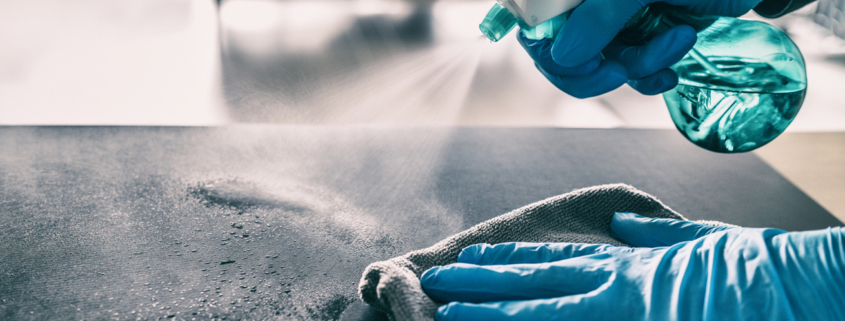
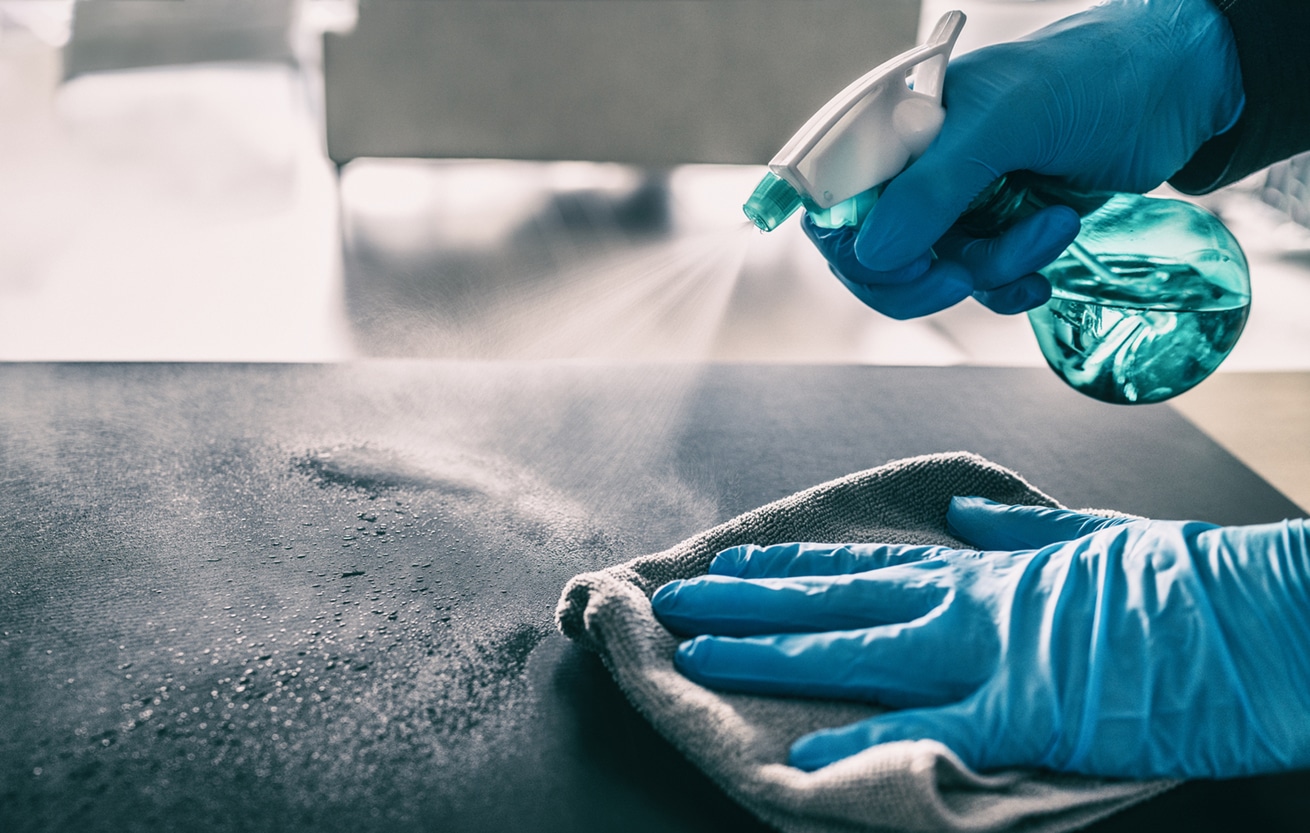


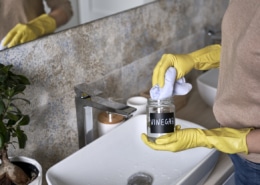
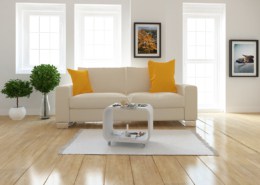
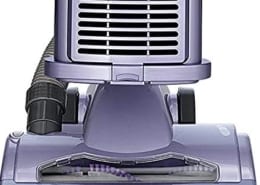
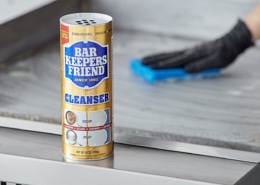
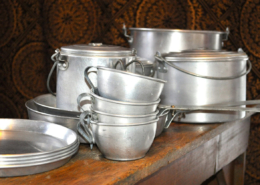
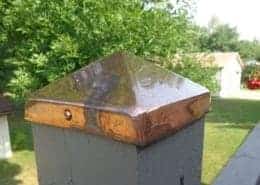
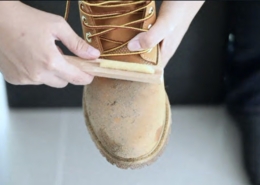
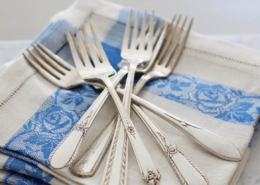


What is the best way to clean Mexican pavers?
I found out the hard way to not use vinegar on chrome or chrome-look bathroom fixtures. I had soaked the faucet with vinegar, and it wound up taking off the coating.
Chrome is tricky, that’s for sure. We assume everything that looks like chrome is authentic chrome.
Word to the Wise: ALWAYS test anything you have not used before in an inconspicuous place FIRST. Assume the worst until you are proven wrong.
Uh-oh! I’ve been using the vinegar + Dawn dish soap mixture for years on our shower which is tile with grout. It works great, but I winder if it’s been gradually causing the grout to break down.
Provided you are resealing the grout annually, you have nothing to worry about. And even if you are not using the vinegar/dawn formula, still tile grout needs to be resealed regularly. That’s just the nature of grout!